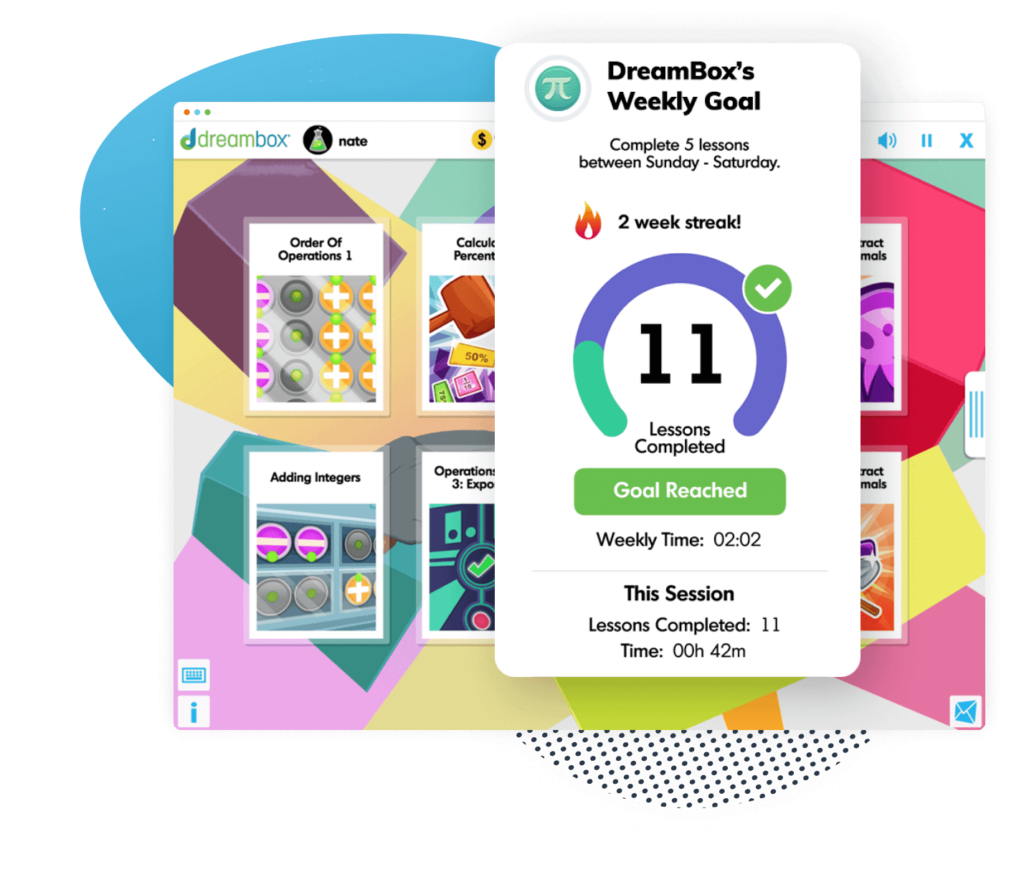10 things for parents to know for the first day of kindergarten
Help your child (and yourself!) prepare for the first day of kindergarten with these helpful tips!

Author
Katie Wickliff
Published:
June 2025
Key takeaways
- • Starting kindergarten is a major milestone for children and the rest of their families.
- • Parents can ease the transition through adjusting routines, reading together, and speaking positively about school.
- • While it helps to be familiar with academic expectations, each kindergartener is unique and will develop in their own time.
The first day of kindergarten is full of excitement, but it can also bring a mix of conflicting emotions for you and your child. Pride, excitement, and a little (or a lot!) of nervousness are completely normal! After all, starting kindergarten is a major milestone for the whole family. Luckily, there are several simple ways to ease the transition and help your child enter this new chapter with confidence. Here are our top 10 tips for a successful first day of kindergarten.
1. Practice self-care skills
Before starting school, rising kindergarteners should be able to perform basic self-care tasks with minimal help. Using the bathroom independently, washing hands, unzipping backpacks, and putting on their shoes and jackets are an important part of daily kindergarten routines. If kids can manage these things, they’ll be able to focus more on learning and make smoother transitions throughout the day. Practicing these self care skills with your child before they begin school will help them feel more confident on the first day of kindergarten.
2. Work on listening and following directions
Kindergarteners must be able to listen and follow simple directions, so practicing these skills at home will go a long way in helping them feel successful in the classroom. Plenty of fun games or puzzles can build these skills- and often, kids won’t even know they’re “learning!” For example, simple games like “Red Light, Green Light” teaches kids to listen for specific cues and respond quickly and appropriately. There are plenty of fun math activities for kindergarteners that help kids practice listening and following directions while developing early math skills at the same time. Additionally, Dreambox Math is filled with interactive math games that will get kids excited about school and learning.
3. Read books together
Many books deal with first day of kindergarten jitters, and reading to your child can help them understand what to expect. In addition to first day nerves, many of these books also help kids learn important social-emotional skills that help them succeed in kindergarten and beyond. Here are some of our favorite books to share with your child:
- On the First Day of Kindergarten
- Chrysanthemum
- First Day Jitters
- We Don’t Eat Our Classmates
- School’s First Day of School
4. Talk about school positively
Even if you’re apprehensive about the first day of kindergarten, be sure to speak positively about the upcoming year. Of course, it’s important to listen to their fears and validate their feelings, but children feel more secure when they sense their parents and caregivers are calm, confident, and in control of the situation.
5. Visit the classroom
Most schools offer an opportunity to visit the kindergarten classroom before the beginning of the year. During this visit, your child will likely meet their teacher, find their desk or cubby, and interact with classmates. This visit turns something abstract and potentially scary into something more predictable, helping ease the transition on the first day. During the classroom visit, parents can also ask questions, learn about the classroom routines, and start building a partnership with the teacher.
6. Organize a playdate with classmates
While some schools offer organized events for kindergarten students to get to know one another, it’s still a great idea to organize playdates with your child’s future classmates. Meeting another child at a playground is a great way to foster a new relationship, as both kids may find it easier to play together on neutral territory. Even seeing just one familiar face on the first day can help your child feel more at ease and excited about starting school.
7. Establish a kindergarten-friendly routine
Consistent routines are an essential part of helping children feel safe and secure during times of major change. If you don’t have them already, creating regular bedtime and morning routines can help your child feel well-rested and ready to learn. Additionally, phasing out naps and reducing screen time before school begins prepares kids for the structure and expectations of school days. Try gradually implementing these new routines a few months before school begins. This way, kindergarten routines won’t feel like such a shock.
8. Expect big feelings
Most children (and adults!) experience some pretty big feelings before the first day of kindergarten, and that’s perfectly ok. Talking about these feelings with your child is a great way to normalize them. Additionally, reading some of the books mentioned above or having an older child tell your kindergartener about their first day can do wonders to ease anxiety and stress, because kids often look to these older children as role models. Also, it’s completely normal for your child to be exhausted the first few weeks of school. Starting kindergarten is a big mental and physical adjustment, even for children who attended full time daycare or preschool. Extra tiredness most likely means that they are just settling into a new rhythm– they’ll acclimate over time.
9. Involve your child in getting organized
In addition to preparing your child for kindergarten through adjusted routines and plenty of positive conversation, remember to enlist your child’s help getting their school supplies organized! If possible, allow them to help pick out their backpack and lunch bag (or at the very least, the color of these items!). Brainstorm a list of snacks your child would enjoy bringing to kindergarten, and involve them in the shopping. Store the snacks in an easy-to-reach spot so they can help pack their own each morning. You can also have your child help label their school supplies. While these seem like chores to an adult, young kids feel proud and capable when they get involved with the preparations.
10. Special reminders
Even if you spend months fully preparing your child for the first day of kindergarten, they’re still going to miss you on the first day! Some children may make this obvious by clinging to you when they enter the classroom, while some might run right in, but rest assured that they all experience at least one moment where they need special reassurance. I’m in my 40s, and I still remember that my mom drew a smiley face on the palm of my hand on the first day of kindergarten. In turn, I drew small hearts on my own kids’ hands when they started school. This special reminder of your love will do wonders in helping your feel safe, supported, and ready to embrace all kindergarten has to offer!
Table of contents
Strengthen your math skills with DreamBox

The math program that drives results
Get started today!
DreamBox adapts to your child’s level and learning needs, ensuring they are appropriately challenged and get confidence-building wins.
FAQs about the first day of kindergarten
On the first day of kindergarten, students spend time getting to know their teacher, classroom, and other classmates. They often read books, play simple games, and are introduced to classroom and school routines.
If your child is nervous on the first day of kindergarten, but sure to acknowledge their worries but express how proud and excited you are for them to have a new adventure!
What kindergarteners need for the first day greatly depends on your child’s individual school and teacher. Make sure to communicate with them prior to the first day, as they should be able to answer any specific questions.
While it’s helpful for kindergarteners to be familiar with colors, letters, and numbers, knowing social-emotional skills like listening, taking turns, and sharing, will help them be successful on the very first day of kindergarten.
Take at home math practice to the next level
Empowering parents and educators to make math practice more impactful. Plus, your kids will love it.


About the Author
Katie Wickliff
Katie holds a master’s degree in Education, has over 15 years of education experience as a primary classroom teacher, and is Orton-Gillingham certified tutor. Most importantly, Katie is the mother of two primary school students, ages 8 and 11. She is passionate about maths education and firmly believes that the right tools and support will help every student reach their full potential.